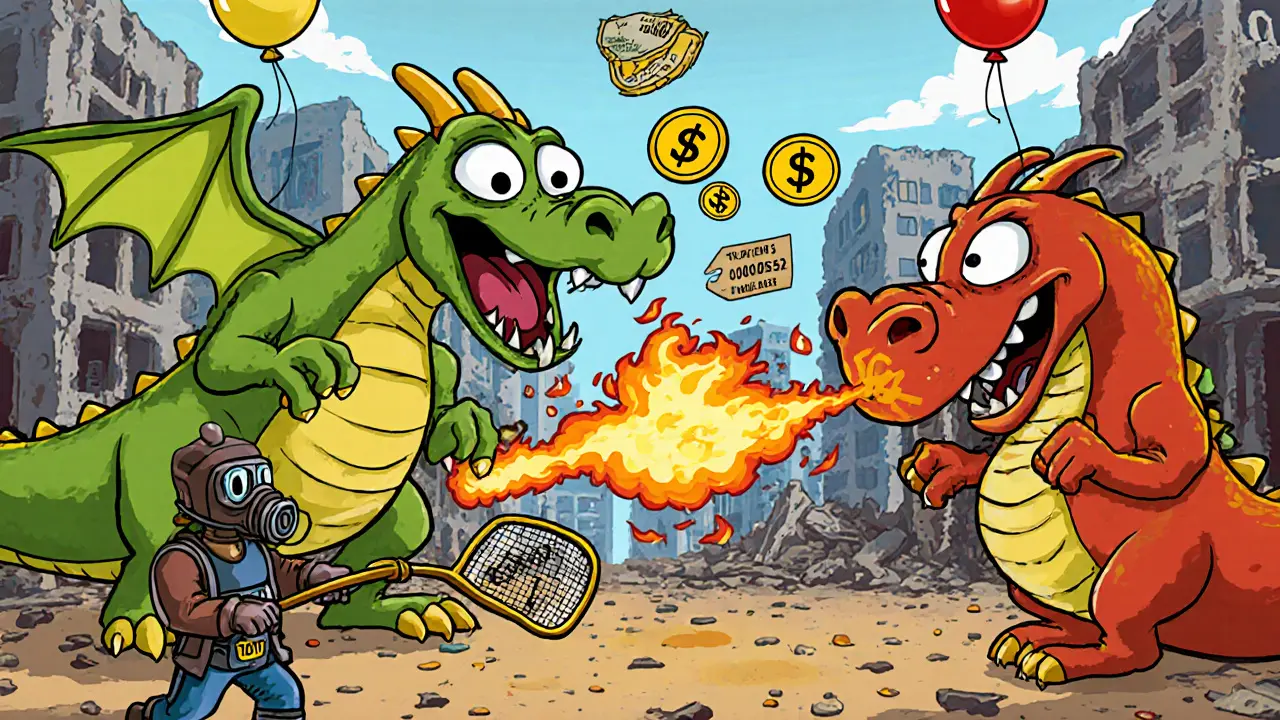DMT Crypto: What It Is, How It Works, and Why It Matters
When people search for DMT crypto, a term that blends the psychedelic compound dimethyltryptamine with blockchain culture. Also known as psychedelic crypto, it doesn't refer to an actual cryptocurrency—it's a cultural phenomenon, a meme, and sometimes a scam bait. There’s no DMT token on Binance, no DMT wallet, no whitepaper. But that hasn’t stopped online communities from using the idea to explore deeper questions: What if money could change how you perceive reality? What if blockchain could be used not just to track transactions, but to map altered states of consciousness?
This isn’t just about fake coins. It’s about the overlap between two worlds that seem unrelated: the spiritual, introspective side of psychedelics and the technical, decentralized side of crypto. People on Reddit, Discord, and Twitter started joking about "DMT crypto" as a metaphor—for the mind-bending volatility of crypto markets, for the hallucinatory nature of DeFi yields, or for the way some traders feel like they’re seeing hidden patterns in price charts, much like someone on a DMT trip sees geometry in the air. It’s not a project. It’s a mirror.
Some scams have tried to cash in. You might find websites claiming to offer "DMT crypto airdrops" or "staking rewards in DMT tokens"—they’re all fake. They’ll ask for your seed phrase, push you to connect your wallet to a phishing site, or sell you NFTs of psychedelic art labeled as "DMT coins." These are not investments. They’re traps. Real crypto projects don’t use hallucinogens as branding. If someone’s selling you a token called DMT, they’re not trying to build a blockchain—they’re trying to build a quick exit.
But the idea behind the meme? That’s worth paying attention to. It reflects a growing group of crypto users who aren’t just chasing returns—they’re questioning the systems they’re participating in. They’re asking: Why does crypto feel so isolating? Why do we treat wallets like bank accounts when the tech was supposed to free us? Why do we need to trade 24/7 just to survive? These are the same questions people ask after a psychedelic experience: What is real? Who controls the narrative? Can we rebuild society differently?
That’s why posts about Echobit, a high-leverage exchange with advanced security but no insurance, or EvmoSwap, a fake exchange pretending to be real, or even Bit4you, a Belgian exchange with zero transparency—they all connect to the same unease. You’re not just choosing an exchange. You’re choosing a system. And if that system feels like a loop of stress, hype, and loss… maybe it’s time to ask why.
Below, you’ll find real reviews, real warnings, and real analysis of crypto platforms, tokens, and trends. Some are about scams. Some are about innovation. Some are about people trying to make sense of a world that moves too fast. None of them sell you DMT crypto. But they might help you find something more valuable: clarity.

